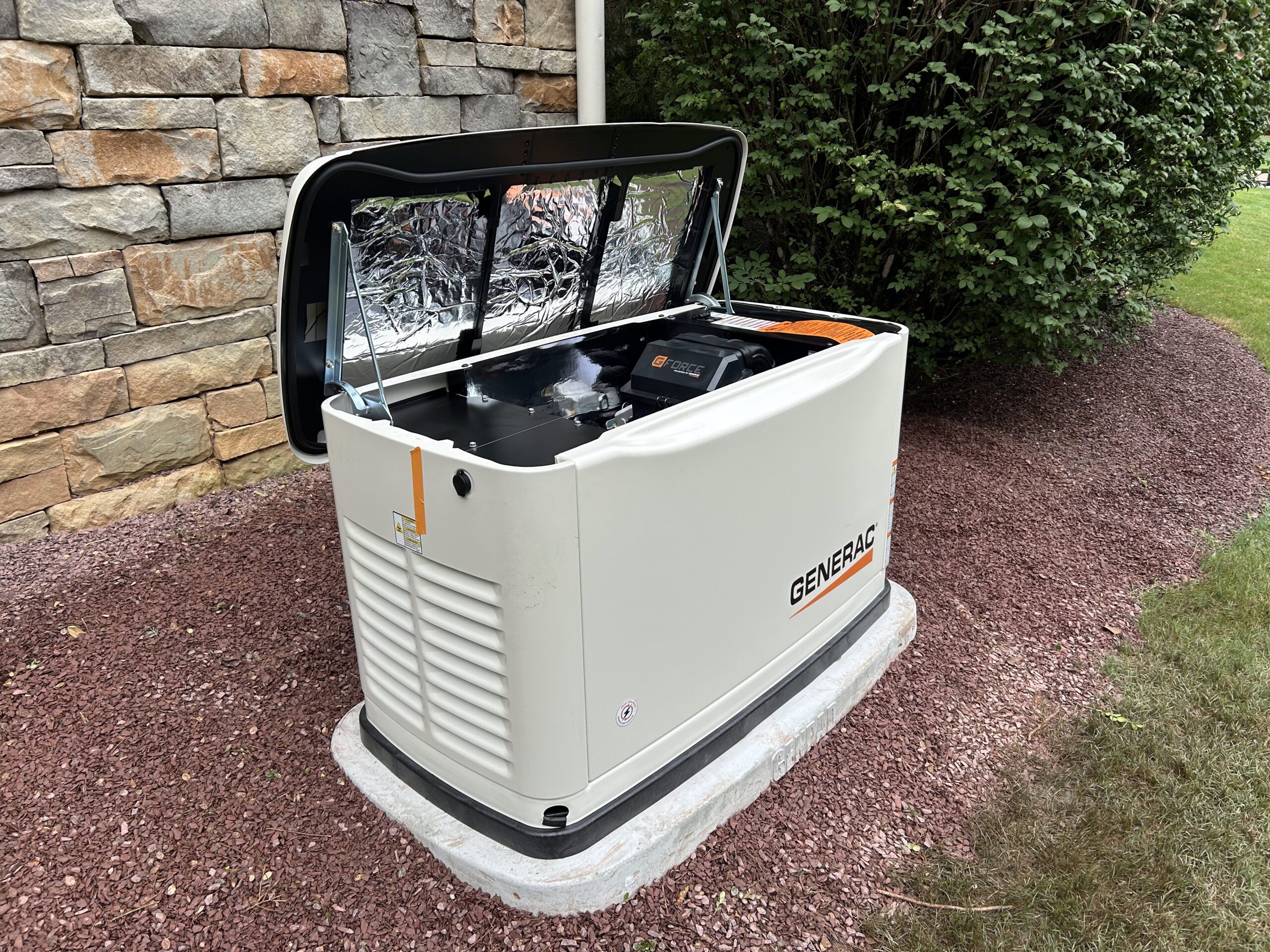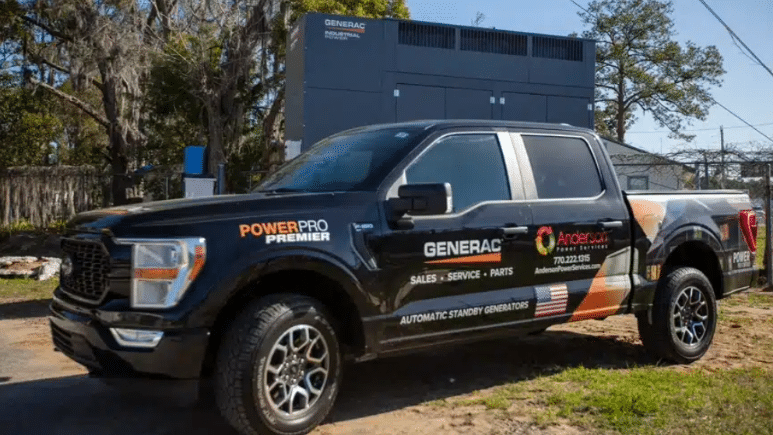For homeowners researching “Atlanta home generators,” this guide provides a thorough understanding of how these systems work and why they are essential. A reliable home generator ensures continuous power during outages, protecting your household’s comfort and safety. Power interruptions can disrupt daily routines, affecting everything from food preservation to heating, cooling, and home office operations. Investing in a dependable generator provides more than convenience—it offers peace of mind.
Understanding the Basics of Home Generator
A home generator serves as an independent power source, automatically activating when utility power is lost. Unlike portable units that require manual operation and frequent refueling, standby generators seamlessly switch to backup power within seconds. These permanently installed systems are designed for efficiency and ease of use, ensuring uninterrupted electricity without requiring homeowner intervention.
The Components of a Home Generator
To better understand how home generators function, it’s helpful to break down their core components:
- Engine: The generator’s power source, similar to a vehicle engine, is designed for prolonged operation, converting fuel into mechanical energy.
- Alternator: This component transforms mechanical energy into electrical power, making it possible to run household appliances and systems.
- Fuel System: Home generators typically use natural gas or liquid propane, providing a steady fuel supply to maintain continuous operation during extended outages.
- Voltage Regulator: Ensures stable electrical output, protecting sensitive electronics such as computers, televisions, and security systems.
- Cooling and Exhaust Systems: Prevent overheating and manage emissions, ensuring efficient and safe operation.
- Control Panel: Displays system performance and settings, though most modern units require minimal user interaction after installation.
- Transfer Switch: A critical safety feature that shifts power from the utility grid to the generator, preventing backfeeding and protecting electrical workers.
The Step-by-Step Process of How Home Generators Work
1. Detecting Power Loss
Home generators continuously monitor the electrical supply. When an outage occurs, the system detects the disruption and activates within moments—often before homeowners realize power has been lost.
2. Engine Activation
Once an outage is identified, the generator’s engine starts automatically. Systems fueled by natural gas or propane provide a reliable energy source, eliminating concerns about running out of fuel during prolonged outages.
3. Electricity Generation
As the engine reaches operational speed, the alternator begins producing electricity. This process is comparable to a car’s charging system but scaled to meet household power demands.
4. Voltage Regulation
To protect appliances and electronics, the voltage regulator ensures consistent power output. Stable voltage prevents fluctuations that could damage sensitive devices such as computers, smart home systems, and medical equipment.
5. Power Transfer
The transfer switch safely disconnects the home from the utility grid and connects it to generator power. This seamless transition occurs within seconds, minimizing disruption to household activities.
6. Power Distribution
Once activated, the generator supplies electricity to essential systems, including HVAC units, refrigeration, lighting, and security systems. The generator’s capacity determines whether it powers only critical appliances or the entire home.
7. System Monitoring
Modern home generators feature advanced monitoring systems that track critical performance metrics such as temperature, voltage, and fuel consumption. Many models offer remote access via smartphone apps, allowing homeowners to monitor generator status from anywhere.
8. Restoring Utility Power
When utility power is restored, the generator doesn’t shut down immediately. Instead, it briefly delays the transition to verify power stability. Once confirmed, the transfer switch reconnects the home to the grid, and the generator systematically shuts down to ensure safe operation.
Choosing the Right Home Generator for Your Needs
Selecting the right generator involves evaluating key factors to ensure optimal performance:
- Power Requirements: Assess essential appliances and systems that require backup power, such as HVAC units, refrigeration, and security systems.
- Fuel Type: Availability of natural gas or propane influences fuel selection. Homes with existing gas lines typically opt for natural gas, while propane is an excellent alternative for areas without gas infrastructure.
- Installation Location: Generator placement must comply with local zoning laws, maintain safe distances from living spaces, minimize noise disturbances, and allow easy access for maintenance.
Installation and Maintenance of Home Generators
Proper installation and routine maintenance are crucial for ensuring that a home generator operates safely and efficiently over the long term. These systems involve complex electrical and fuel components, making professional installation a necessity.
Installation Process
Installing a home generator begins with a comprehensive site assessment. A professional technician evaluates the property’s layout, electrical capacity, and local zoning requirements to determine the best location for the unit. Proper placement ensures compliance with safety standards, optimal performance, and minimal disruption to the home environment.
Once the site is selected, obtaining the necessary permits is the next step. Installation must adhere to local building codes and regulations, ensuring both safety and legal compliance. This process can be time-consuming, but an experienced installer will handle the paperwork and approvals efficiently.
The installation itself involves integrating the generator with the home’s electrical and fuel systems. A transfer switch is installed to allow seamless transitions between utility and backup power, preventing dangerous back-feeding into the grid. If the generator runs on natural gas, a licensed technician will connect it to the home’s gas line; a secure fuel supply must be established for propane-fueled models. Once installed, the entire system undergoes rigorous testing to verify proper operation.
Ongoing Maintenance
Routine maintenance is essential for keeping a home generator in peak condition. Regular oil changes help maintain engine efficiency, much like they do for a vehicle. The air filter must also be inspected and replaced as needed to prevent dirt buildup that can hinder performance.
Battery health is another critical component of generator maintenance. Over time, batteries can degrade, leading to startup failures during a power outage. Periodic battery checks ensure reliable ignition when needed most. Additionally, professional technicians perform load testing and diagnostic evaluations to confirm the generator’s overall health and readiness.
A well-maintained generator offers homeowners peace of mind, knowing that their backup power system is always prepared for an emergency. Scheduling annual professional inspections and following the manufacturer’s maintenance guidelines will extend the generator’s lifespan and improve reliability.
Why Choose Anderson Power Services for Your Home Generator Needs
With over 25 years of experience, Anderson Power Services is a trusted provider of home generators in Atlanta. Founded in 1995 by Kevin Anderson, our veteran-owned company is committed to delivering high-quality installations and exceptional customer service. Our expertise ensures homeowners receive tailored solutions that meet their unique power needs.
Secure Your Home’s Power Supply
Understanding home generators is your first step toward ensuring your family’s comfort and security during power outages. These systems do more than just provide backup power—they give you real peace of mind.
For those considering Atlanta home generators, these units are particularly valuable given our regional weather patterns and occasional severe storms. With proper installation and maintenance, your generator system will provide reliable power protection for years to come.
Don’t wait until the next power outage catches you off guard. Contact Anderson Power Services today—we’re the trusted experts on home generators Atlanta homeowners have relied on for over 25 years. We’ll help you select, install, and maintain the perfect generator solution for your specific needs. Remember, you’re not just buying a piece of equipment—you’re investing in your home’s comfort and security.
Get a Consultation
Virtual or in-person, we will help you determine the best backup power solutions for your needs.



